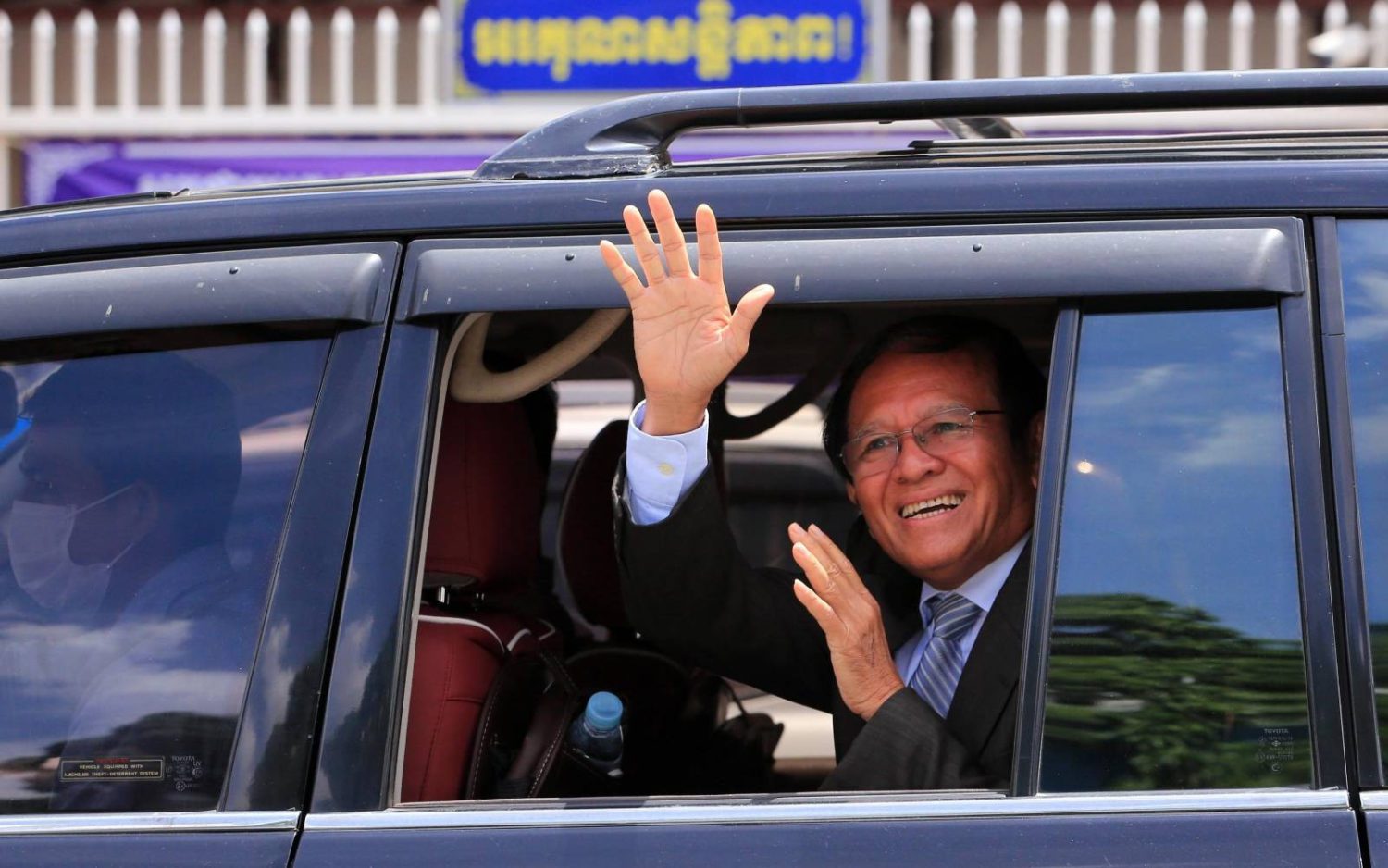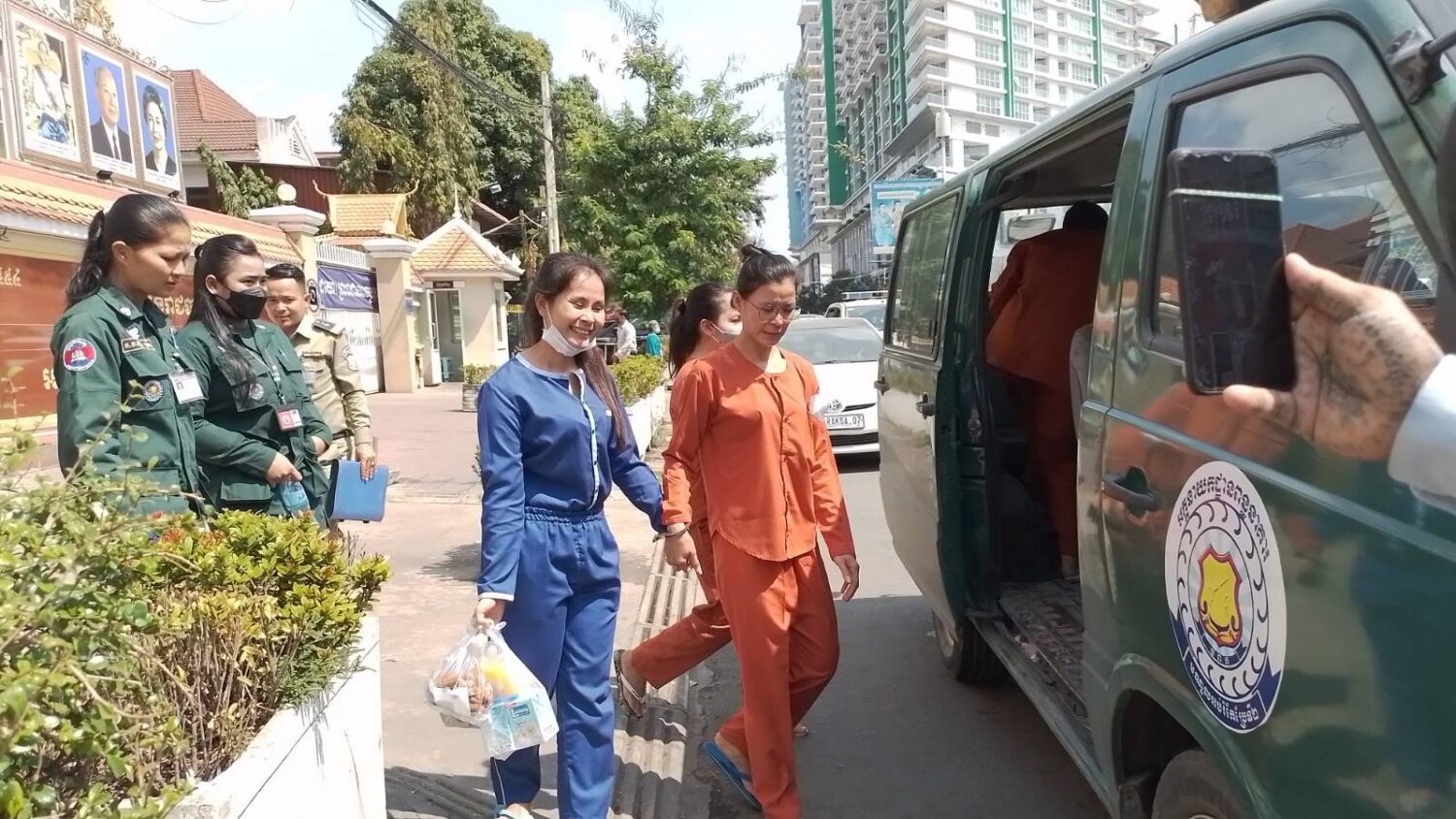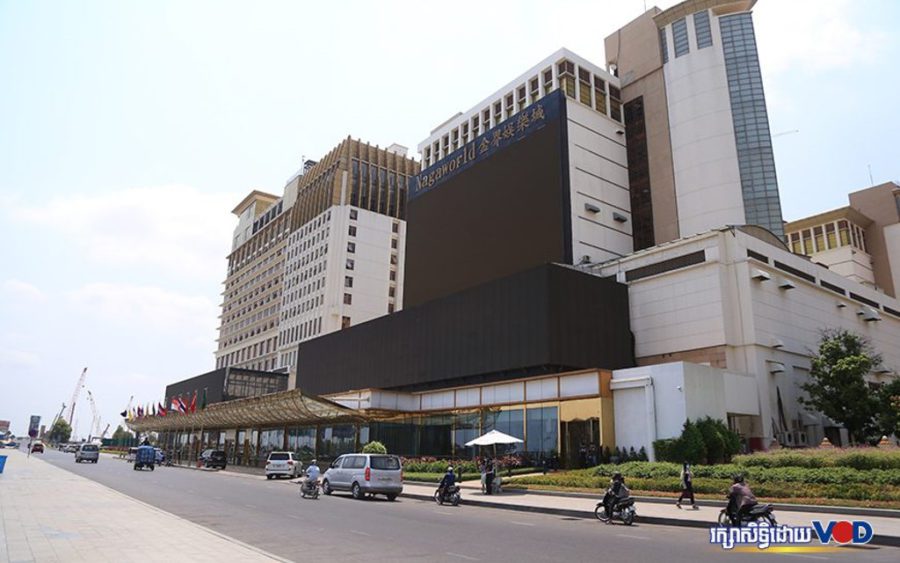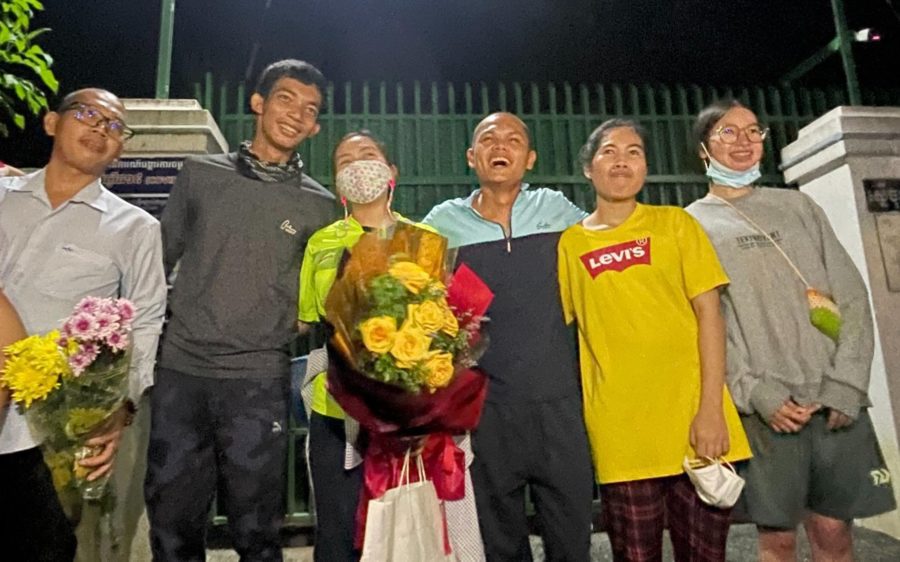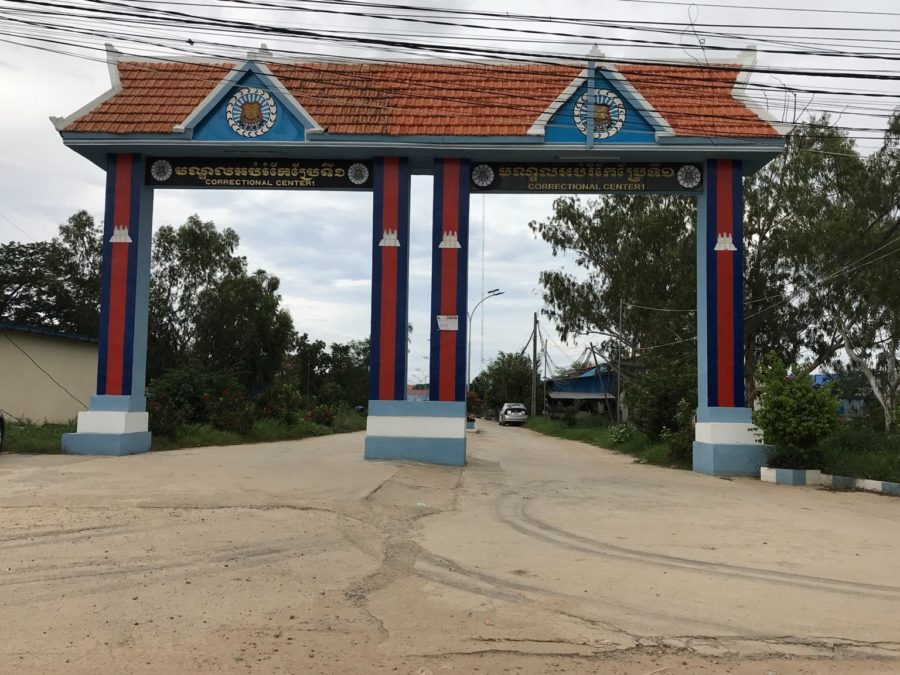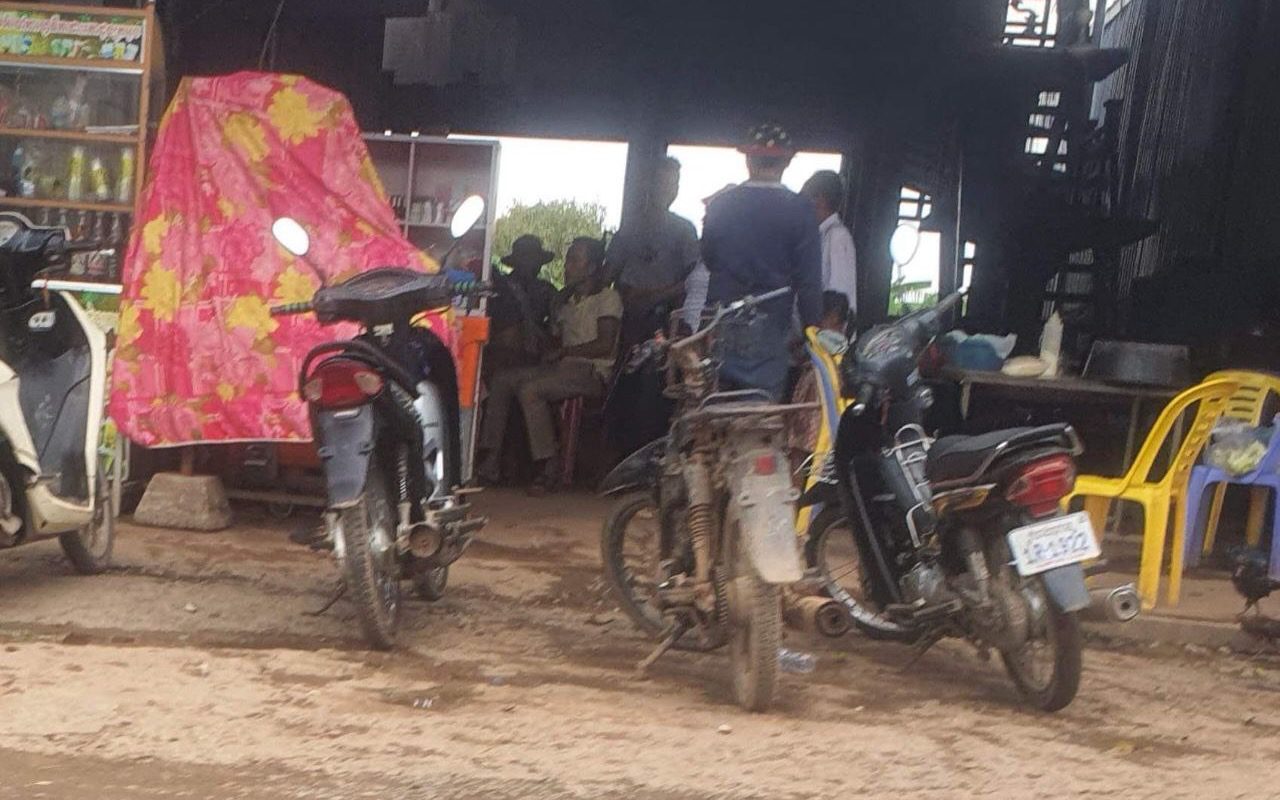Court officials in Phnom Penh say they are now searching for whoever released an audio clip of Kem Sokha announcing his split from Sam Rainsy, as recorded in a courtroom during Sokha’s drawn-out treason trial.
The government-aligned outlet Fresh News published the recording on Wednesday, prompting questions of how they had obtained the clip.
Previously, attendees of Sokha’s trial sessions, including reporters, were required to place their phones, audio recorder and watches outside the courtroom. Guards allowed only pens and paper for taking notes.
Taing Sunlay, the president of the Phnom Penh Municipal Court, told VOD on Thursday that he didn’t know who had recorded the clip of Sokha.
“Otherwise, next time, it might be better not to allow [reporters] to go in,” Sunlay said.
He added that his office was investigating the matter and might strengthen security in the future, or call in whoever made the recording for a meeting.
Presiding judge Koy Sao referred questions to the court spokesman.
“I have no duty to answer to the media because it is against my professionalism,” the judge said, claiming that it was against the law for him to answer more questions.
Court spokesman Plang Sophal said he would look into the case. He said he didn’t know yet if the court would take action against the person who made the recording.
The audio clip published by Fresh News focuses on Sokha announcing the end of any political partnership with Rainsy, who lives exiled in France.
“I have stopped having any connection with Sam Rainsy anymore. The words of Sam Rainsy and Kem Sokha as the same person no longer exist,” Sokha said in court.
Muth Chantha, an aide of Sokha, could not be reached for comment.
Chak Sopheap, the executive director of the Cambodian Center for Human Rights, has monitored Sokha’s case and said security had consistently limited what attendees could take inside.
She wondered how Fresh News had obtained Sokha’s audio while those who attended the trial were strictly checked. Sometimes that extended even outside the court compound, Sopheap added, where they were not allowed to take photos. Still, she noted the outlet is one that “we already knew as having connections with the government.”
“If they had no permission [to record], what action will the court take?” she questioned. “Because if such a case happened with other media or individuals that have the opposite tendency, [they] could face legal action from the court.”
However, Sopheap said if the court has any tolerance for this recording, it should apply that same standard to everyone to avoid criticism of double-standards.
Justice Ministry spokesman Chin Malin did not comment when asked, referring questions to the court.
A lawyer, Sek Sophorn, told VOD that the law on criminal procedures requires all trials to be conducted in public, but there may also be some restrictions on publicity in order to guarantee safety and order.
In principle, Sophorn said, trials are public hearings unless a judge announces a closed courtroom with different procedures.
Speaking about the release of the Sokha audio recording, he said such recordings aren’t banned unless so ordered by a judge.
Asked if that meant reporters can make and use their own recordings while covering hearings, Sophorn said “my understanding is that it is not against the law.”
He repeated that, only if there are restrictions with the aim to maintain order during the trial, everything is considered public.


